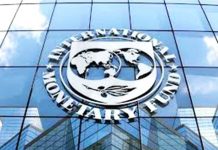Mrs Elsie Addo Awadzi, the Second Deputy Governor of the Bank of Ghana, has called on law enforcement agencies to collaborate with the Bank in efforts to sanitise the forex bureau sector.
This, she said, they could help the Central Bank do by strictly enforcing existing rules for the fair and transparent conduct of business by licensed forex bureaux and by clamping down on illegal forex operations (the so-called black market).
Mrs. Awadzi made the call during a workshop for the Committee for Co-operation between the Law Enforcement Agencies and the Banking Community (COCLAB) in Accra.
The workshop is part of collaborative efforts by the Central Bank and Law enforcement Agencies to deal with growing financial crimes in the banking industry.
She said while Bank regulated the sector, it relied on criminal investigative and law enforcement agencies (all of which are members of COCLAB) to help with enforcement efforts.
She said combating financial crime through information sharing and strategies would help prevent financial crime and working closely together to investigate and enforce breaches of relevant rules against perpetrators of financial crime and their enablers were essential to building a healthy and resilient economy and nation.
The Second Deputy Governor said financial crime in all its forms, including money laundering, terrorist financing, fraud, whether offline or cyber-related, siphoning and diversion of funds from the financial system by insiders to related parties, and others, all erode the integrity of the financial system.
She said it destroys the confidence and trust that the Ghanaian public and our foreign counterparts repose in it.
“This has adverse ramifications for our economy, such as a reduction in the rate of savings and investments in the formal financial system, a reduction in international trade facilities and foreign investment inflows that support our economy,” Mrs. Awadzi added.
She urged members to take a critical look at fraud-related developments and identify concrete measures to help to address the underlying factors, so that we reverse the trends.
She called on them to work together to speed up investigations and prosecutions for financial crimes that led to the failure and demise of 420 of the regulated institutions in the recent past, as well as brought untold hardships to depositors, former employees, other creditors, and ultimately, taxpayers, that had to pay to provide relief for those affected.
The Central Bank recently revived the Committee to provide a platform for strong collaboration among the banking industry, national security and law enforcement agencies, the Judiciary and other key Agencies, to step up the fight against financial crime.
She assured Members of the Committee of the Bank’s continued support for your work and would remain a strong partner going forward.
The Committee members were drawn from the Bank of Ghana, Ghana Association of Banks, the Judiciary, the Ministry of Justice and the Attorney General’s Department, the Ministry of Interior and the National Security Coordinator’s Secretariat.
Others are Interpol Ghana, the Economic and Organized Crime Office, the Financial Intelligence Centre, the National Investigations Bureau, the Ghana Police Service, Ghana Immigration Service, the Ghana Revenue Authority, the Registrar General’s Department, and the National Communication Authority.
Source: GNA









